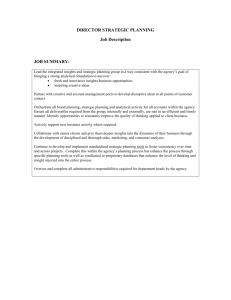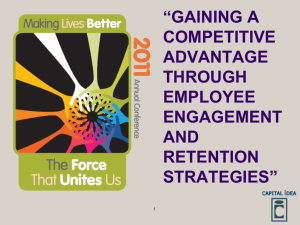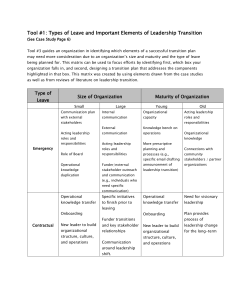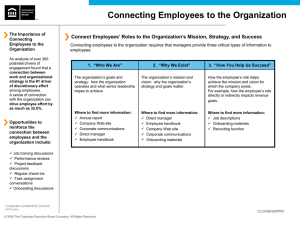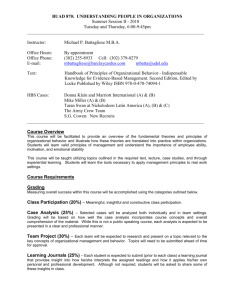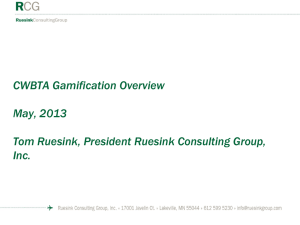Summarized Enterprise Collaboration Questionnaire Nov. 16, 2015
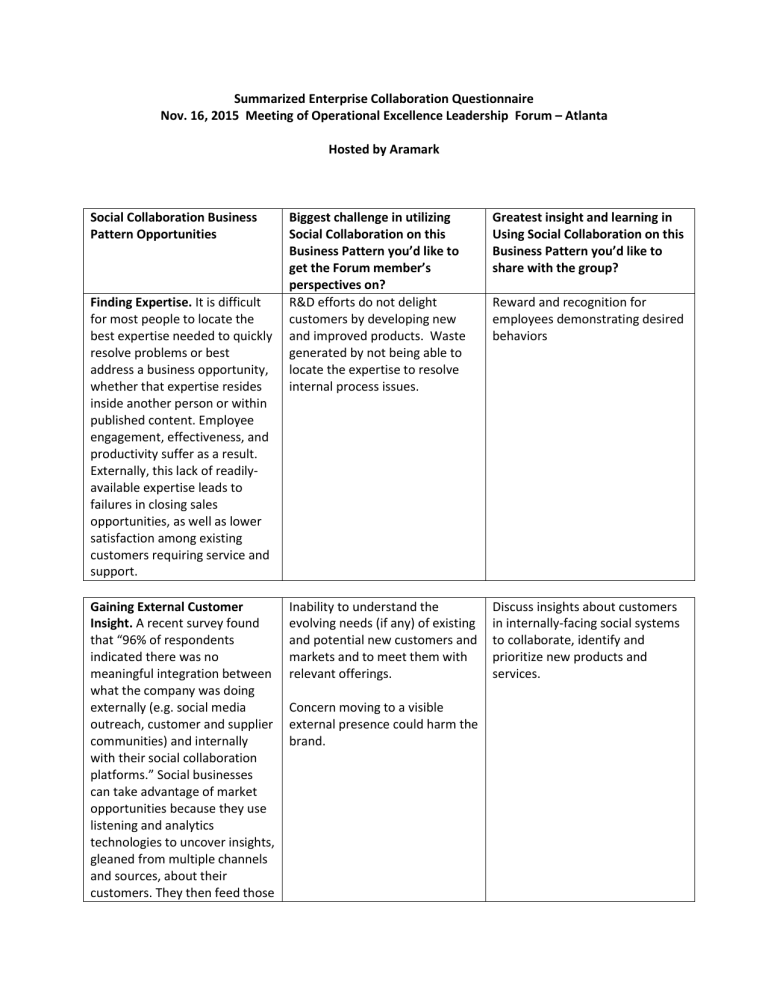
Summarized Enterprise Collaboration Questionnaire
Nov. 16, 2015 Meeting of Operational Excellence Leadership Forum – Atlanta
Hosted by Aramark
Social Collaboration Business
Pattern Opportunities
Finding Expertise. It is difficult for most people to locate the best expertise needed to quickly resolve problems or best address a business opportunity, whether that expertise resides inside another person or within published content. Employee engagement, effectiveness, and productivity suffer as a result.
Externally, this lack of readilyavailable expertise leads to failures in closing sales opportunities, as well as lower satisfaction among existing customers requiring service and support.
Gaining External Customer
Insight. A recent survey found that “96% of respondents indicated there was no meaningful integration between what the company was doing externally (e.g. social media outreach, customer and supplier communities) and internally with their social collaboration platforms.” Social businesses can take advantage of market opportunities because they use listening and analytics technologies to uncover insights, gleaned from multiple channels and sources, about their customers. They then feed those
Biggest challenge in utilizing
Social Collaboration on this
Business Pattern you’d like to get the Forum member’s
perspectives on?
R&D efforts do not delight customers by developing new and improved products. Waste generated by not being able to locate the expertise to resolve internal process issues.
Inability to understand the evolving needs (if any) of existing and potential new customers and markets and to meet them with relevant offerings.
Concern moving to a visible external presence could harm the brand.
Greatest insight and learning in
Using Social Collaboration on this
Business Pattern you’d like to
share with the group?
Reward and recognition for employees demonstrating desired behaviors
Discuss insights about customers in internally-facing social systems to collaborate, identify and prioritize new products and services.
insights into internal social systems and processes, enabling employees to collaboratively respond to customers with appropriate solutions.
Increasing Knowledge Sharing
Pioneering social businesses are shifting their focus from discrete knowledge transactions to ongoing knowledge relationships.
These companies are creating value by sharing knowledge across internal barriers created by organizational structure and systems, and traditional borders between themselves and their partners and customers. They are also integrating gamification elements to reward individuals who openly share their knowledge.
Improving Recruiting and On-
Boarding It is increasingly important for organizations to identify, hire and retain the best available talent, in order to gain and maintain competitive advantage. Businesses must also increase the effectiveness of their onboarding activities to quickly get new hires acclimated and productive.
Excessive cost attributed to rework and solution duplication
Getting new hires started and making them productive contributors as quickly as possible.
Make people-based knowledge as accessible as document-based knowledge through always available social communication tools. Use gamification elements to provide social recognition to those who freely and openly share their knowledge.
25% reduction in time needed to fill open positions

